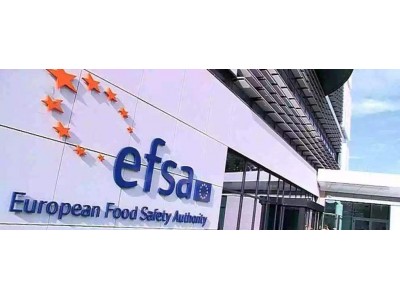сђђсђђжБЪтЊЂС╝ЎС╝┤уйЉУ«» ТЇ«тцќтфњТіЦжЂЊ№╝їтЈќЧa href='//www.sqrdapp.com/news/tag_545.html' class='zdbq' title='ТЪЉТЕўуЏИтЁ│жБЪтЊЂУхёУ«»' target='_blank'>ТЪЉТЕўж╗ёжЙЎуЌЁтй▒тЊЇ№╝їуЙјтЏйСйЏуйЌжЄїУЙЙтиъСИјТ┤ЏТЮЅуЪХуџёТЪЉТЕўТаЉжЂГжЄЇтѕЏ№╝їТъютєюТЇЪтц▒ТЃежЄЇсђѓСИ║т║ћт»╣ТЮЦУЄфС║џТ┤▓уџёж╗ёжЙЎуЌЁ№╝їтіатиъТъютєюСИјтіатиътиъуФІтцДтГдТ│бУјФу║│тѕєТаАУЂћТЅІт»╣ТіЌж╗ёжЙЎуЌЁ№╝їтѕЕућеС║«УЁ╣жЄЅт░Јж╗ёУюѓ№╝ѕTamarixia radiata wasp№╝ЅУ┐ЎуДїЧa href='//www.sqrdapp.com/news/tag_4780.html' class='zdbq' title='ућЪуЅЕуЏИтЁ│жБЪтЊЂУхёУ«»' target='_blank'>ућЪуЅЕТГдтЎеУ┐ЏУАїт║ћт»╣сђЂЧ/p>

сђђсђђтіатиътиъуФІуљєтиЦтцДтГдТ│бУјФу║│тѕєТаАТаАжЋ┐УАеуц║№╝їТЪЉТЕўж╗ёжЙЎуЌЁтй▒тЊЇтіатиъС║Дтђ?3С║┐уЙјтЁЃуџёТЪЉТЕўС║ДСИџ№╝їСИќуЋїтЁХС╗ќтю░тї║уџёТЪЉТЕўС║ДСИџС╣ЪтцДтЈЌтй▒тЊЇсђЂЧ/p>
сђђсђђТЇ«С║єУДБ№╝їж╗ёжЙЎуЌЁућ▒ТюеУЎ▒УЎФт╝ЋтЈЉсђѓТЕўтГљтЈіТЪаТфгуГЅТЪЉТЕўуДЉуџёТцЇуЅЕ№╝їтдѓТъюТёЪТЪЊж╗ёжЙЎуЌЁ№╝їтЈХтГљС╝џТъ»ж╗ё№╝їТъюУѓЅтЈўжЁИ№╝їТюђу╗ѕТъюТаЉС╝џТГ╗С║АсђѓтѕЕућеТюеУЎ▒УЎФуџётцЕТЋ?С║«УЁ╣жЄЅт░Јж╗ёУюѓТў»СИђуДЇУЙЃтЦйуџёућЪуЅЕт║ћт»╣Тќ╣Т│ЋсђЂЧ/p>
сђђсђђжЃетѕєтјЪТќЄТіЦжЂЊтдѓСИІ№╝ЎЧ/p>
сђђсђђCal Poly Pomona is training an army of tiny wasps to battle the Asian citrus psyllid, a voracious pest responsible for crippling the Florida citrus industry that has recently infiltrated Los Angeles County.
сђђсђђArmed with a $400,000 grant from the Citrus Pest & Disease Prevention Program, the agriculture-oriented university unveiled a new research greenhouse Monday that may become the second-largest facility in Southern California №╝ѕthe largest is in Mt. Rubidoux№╝ for breeding the Tamarixia radiata, a natural predator of the tree-killing psyllid.
сђђсђђThe new flank in the war against the citrus plant disease Huanglongbing, carried by the pest, is part of a multi-pronged battle to reduce the infestation of psyllid in Los Angeles, Imperial, Ventura and Riverside counties, wher growers make up a portion of California's $3.3 billion citrus industry.
сђђсђђтјЪТќЄжЊЙТјЦ№╝ЎЧa href="http://www.sgvtribune.com/environment-and-nature/20160725/cal-poly-pomona-raising-army-of-wasps-to-fight-citrus-blight">http://www.sgvtribune.com/environment-and-nature/20160725/cal-poly-pomona-raising-army-of-wasps-to-fight-citrus-blight










 тю░тї║№╝ЎЧ/font>
тю░тї║№╝ЎЧ/font>

 ТгДуЏЪУ»ёС╝░УйгтЪ║тЏаујЅу▒│MO
ТгДуЏЪУ»ёС╝░УйгтЪ║тЏаујЅу▒│MO
 ТгДуЏЪУ»ёС╝░СИђуДЇж║дУійу│ќТиђ
ТгДуЏЪУ»ёС╝░СИђуДЇж║дУійу│ќТиђ уЙјтЏйТІЪТњцжћђУІЦт╣▓УѓЅу▒╗тЈЅЧ/a>
уЙјтЏйТІЪТњцжћђУІЦт╣▓УѓЅу▒╗тЈЅЧ/a> ж▓ЂтЁгуйЉт«Ѕтц 37060202000128тЈХЧ/a>
ж▓ЂтЁгуйЉт«Ѕтц 37060202000128тЈХЧ/a>



